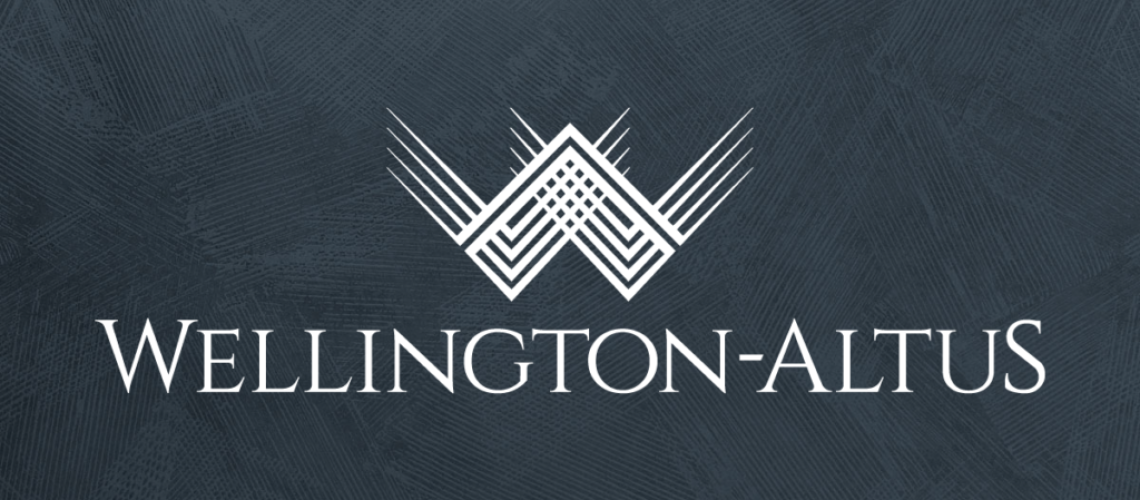Economic and Tax Highlights from the 2021 Federal Budget
“The truth is that the tragedy of COVID-19 has created a window of opportunity.”
On April 19, 2021, Canada’s Deputy Prime Minister and Minister of Finance, the Honourable Chrystia Freeland delivered the Liberal government’s first budget in over two years. The 739-page budget entitled, “A Recovery Plan For Jobs, Growth, And Resilience” focused primarily on finishing the fight against COVID-19, creating jobs and growth, fostering a resilient and inclusive recovery, while continuing this government’s objectives in building the middle class, creating a responsible government and a fair tax system.
“When COVID-19 first hit, it pushed our country into its deepest recession since the Great Depression.”
As for the country’s projected financial position, the COVID-19 support and relief measures over the last fourteen months by the government is unprecedented. Deficits of $354.2B in 2020-21, $154.7B in 2021-22, and $59.7B in 2022-23 are projected, and the Federal debt-to-GDP ratio is anticipated to hover between 49-51% over the next three years.
Budget 2021 Predictions
To the relief of Canadians and contrary to widespread speculation, the government did not increase the capital gains inclusion rate, nor were changes announced with respect to the principal residence exemption.
Key Initiatives: Women in the Economy; Early Learning and Child Care Plan
COVID-19 has affected all Canadians, but women have been disproportionately affected. In the labour market, women were hit earlier and harder, and their jobs continue to recover more slowly due in large part to the closure of schools and childcare facilities and inability to return to the workforce due to their caregiving roles. Women’s participation in the workforce, their susceptibility to job insecurity and predominant involvement in health, education and senior sectors were noted throughout Budget 2021.
“Investing in early learning and child care offers a jobs-and-growth hat trick: it provides jobs for workers, the majority of whom are women; it enables parents, particularly mothers, to reach their full economic potential; and it creates a generation of engaged and well prepared young learners.”
The key announcement in Budget 2021 is the introduction of a Canada-wide Early Learning and Child Care Plan.
Key points of the Early Learning and Child Care Plan:
- Investment totaling up to $30 billion over the next five years, and $8.3 billion ongoing to reduce the burden of high childcare costs.
- The aim:
- 50% reduction in average fees for regulated early learning and childcare before or by the end of 2022;
- Reduce regulated childcare fees down to $10/day by 2025-26 across Canada;
- Support ongoing annual growth in quality affordable childcare spaces across Canada; and
- Improve and expand before and after-school care to provide more flexibility for working parents.
- Support a growing, qualified workforce with provincial and territorial partners. Early childhood educators are the heart of the system, they need to be valued, and provided training and development opportunities needed to support their growth and the growth of a quality system of child care.
Personal Tax Measures
“The government is focused on building the middle class and building an economy that works for everyone. To do that, Canadians need a tax system that is fair.”
Personal Income Tax Brackets and Rates
There were no changes to federal personal income tax rates.
Luxury Tax
Budget 2021 proposes to introduce a tax on the sales, for personal use, of luxury cars and personal aircraft with a retail sales price above $100,000, and boats, for personal use, above $250,000. The tax would be calculated at the lesser of:
- 20 per cent of the value above the threshold ($100,000 for cars and personal aircraft, $250,000 for boats); or
- 10 per cent of the full value of the luxury car, boat, or personal aircraft.
This measure would come into force on January 1, 2022.
Tax on Unproductive Use of Canadian Housing by Foreign Non-resident Owners
Budget 2021 proposes to implement a national, annual 1 per cent tax on the value of non-resident, non-Canadian owned residential real estate that is considered to be vacant or underused, effective January 1, 2022. The tax will require all owners, other than Canadian citizens or permanent residents of Canada, to file a declaration as to the current use of the property, with significant penalties for failure to file.
The anticipated revenues from this initiative will support the government’s significant investments in making housing more affordable for all Canadians.
Increasing Old Age Security for Canadians 75 and Over
The government is committed to increasing Old Age Security (OAS) benefits for seniors age 75 and older. Budget 2021 outlines the implementation of this commitment in two steps:
- To meet the immediate needs of this group of seniors by providing a one-time payment of $500 in August 2021 to OAS pensioners who will be 75 or over as of June 2022; and
- Introduce legislation to increase regular OAS payments for pensioners 75 and over by 10 per cent on an ongoing basis as of July 2022. This would increase the benefits for approximately 3.3 million seniors, providing additional benefits of $766 to full pensioners in the first year, and indexed to inflation going forward.
Improving Access to Disability Tax Credit (DTC)
To help more families and people living with disabilities access the DTC, and other related support measures like the Registered Disability Savings Plan and the Child Disability Benefit, Budget 2021 proposes the following changes:
- Update and clarify the list of mental functions of everyday life that is used for assessment for the Disability Tax Credit; and
- Recognize more activities in determining time spent on life-sustaining therapy and to reduce the minimum required frequency of therapy to qualify for the Disability Tax Credit.
These proposed changes would apply to the 2021 and subsequent taxation years, in respect of DTC certificates filed with the Minister of National Revenue on or after Royal Assent. It is estimated that, as a result of these measures, an additional 45,000 people will qualify for the DTC, and related benefit programs linked to its eligibility, each year.
Corporate Measures for Small to Medium Enterprises
“Budget 2021 is a plan to make targeted investments in Canada’s businesses so they can hire and train Canada’s workers, who will then have more money to spend, spurring out recovery and growing an economy with more opportunities for everyone.”
Corporate Income Tax Rates
There were no proposed changes to federal corporate income tax rates or the small business limit.
Federal Minimum Wage
The government of Canada announced its intention to introduce legislation that will establish a federal minimum wage of $15 per hour, rising with inflation, with provisions to ensure that where provincial or territorial minimum wages are higher, that wage will prevail. Provincial minimum wages range from $11.45 (Saskatchewan) to $60.00 (Nunavut). This will directly benefit over 26,000 workers who currently make less than $15 per hour in the federally regulated private sector.
Immediate Expensing of up to $1.5 Million of Capital Property Acquisitions
Budget 2021 proposes to allow immediate expensing of up to $1.5 million of eligible investments by Canadian-controlled private corporations made on or after Budget Day and before 2024. Eligible investments will cover over 60 per cent of capital investments typically made by Canadian-controlled private corporations.
Update on COVID-19 Relief Measures
“The government’s broad suite of support measures has helped families, protected jobs, and supported businesses across Canada. More than eight of every ten dollars spent to fight COVID-19 and support Canadians continues to come from the federal government”
For businesses:
New Canada Recovery Hiring Program
The proposed Canada Recovery Hiring Program would offset a portion of the extra costs employers take on as they reopen, either by increasing wages or hours worked, or hiring more staff. This support would only be available for active employees and will be available from June 6 to November 20, 2021.
Eligible employers would claim the higher of the Canada Emergency Wage Subsidy or the new proposed subsidy, but not both. While the wage subsidy amount is assessed based on revenue declines, the hiring subsidy will be assessed based on the difference between an employer’s baseline payroll and current payroll. However, employers would still need to experience qualifying declines in revenues relative to pre-pandemic amounts to qualify for the hiring subsidy.
The hiring subsidy rate will be:
- 50% (June 6 to August 28)
- 40% (August 29 to September 25)
- 30% (September 26 to October 23)
- 20% (October 24 to November 20)
Extension of Existing Emergency Business Supports
The government recently extended the application deadline for the Canada Emergency Business Account (CEBA) to June 30, 2021. The government increased the value of the loan from $40,000 to $60,000 in December 2020. If businesses repay the loan before December 31, 2022, then a third of the loan will be forgiven ($20,000).
Budget 2021 proposes to further extend the following support programs until September 25, 2021:
- Canada Emergency Wage Subsidy (CEWS)
- Canada Emergency Rent Subsidy (CERS); and
- Lockdown Support
The subsidy rates are proposed to be gradually reduced beginning July 4, 2021. The maximum subsidy rates of 75% for CEWS and 65% for CERS will be extended to July 3, 2021 and then gradually decrease as follows:
- 60% (July 4 to July 31)
- 40% (August 1 to August 28)
- 20% (August 29 to September 25)
In addition, Budget 2021 outlines only employers with a decline in revenues of more than 10% will be eligible for CEWS, CERS and Lockdown Support post July 3, and proposes a clawback of wage subsidy payments to publicly listed corporations who increased executive pay from 2019 to 2021.
For individuals:
New Tax Treatment of Emergency Benefit Repayments
Individuals required to repay COVID-19 benefits will be eligible to claim a deduction for the repayment of the benefit for the tax year in which the benefit amount was received as opposed to the year in which the repayment is made. Individuals, however, must repay the benefit amount prior to 2023. This change will prevent many Canadians from paying tax on benefit amounts that they ultimately had to repay.
Extension of Recovery Benefits and Changes to Employment Insurance
While Canada has recovered about 90 per cent of jobs lost during the pandemic, there are still over half a million Canadians out of work or working reduced hours.
Budget 2021 proposes the following income support measures:
- Temporarily waiving the one-week waiting period for Employment Insurance Claims (EI) for beneficiaries who make a claim between January 31, 2021 and September 25, 2021;
- Provide up to 12 additional weeks of Canada Recovery Benefit, to a maximum of 50 weeks. The benefit amount will be $500 per week for the first four additional weeks, and $300 per week for the remaining 8 weeks. This would be available until September 25, 2021;
- Extend the Canada Recovery Caregiving Benefit for an additional 4 weeks, to a maximum of 42 weeks at $500 per week; and
- Enhance sickness benefits from 15 to 26 weeks. This extension, which would take effect in summer 2022, would provide approximately 169,000 Canadians every year with additional time and flexibility to recover and return to work.
“Opportunity is coming. Growth is coming. Jobs are coming. After a long year of retrenchment, Canadians are ready to recover and rebuild.”
Please note: any proposed changes highlighted above are simply proposals until passed into law by the government.





